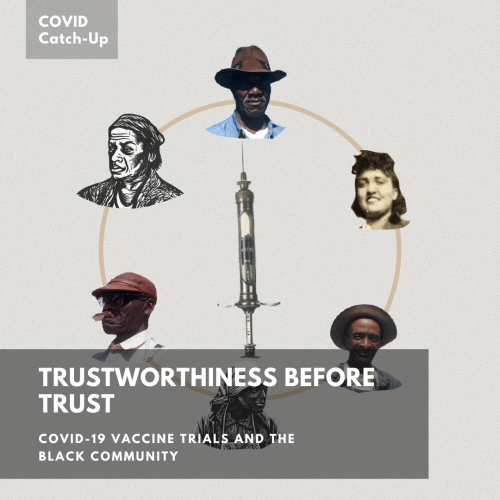Graphic by Annie Lin.
Low rates of trial participation in certain groups, including the Black community, spark growing concerns in the validity of vaccine trials. While the Black population represents 13% of the US population and 21% of COVID-19 deaths, they disproportionately participate in vaccine trials as merely 3% of all enrollees. A major factor in this trend is the sentiment of mistrust many Black Americans feel towards the healthcare system and clinical research, which derives from the infamous syphilis study at Tuskegee where researchers withheld treatment from Black participants with syphilis despite the availability of a cure.
To overcome the various barriers that Black people face in trial participation, some suggest methods in earning trust in the health care system within the community. One way is for trial sponsors and regulatory agencies to ensure an exemplary informed-consent process and improve the transparency of clinical trials for participants. Participants should also be able to expect and trust that their community has fair access to vaccines after release.
Additionally, vaccines should be built on sound scientific evidence that adequately convinces not only the general public but also marginalized communities facing barriers to access the treatment. In the case of injury as a result of receiving an experimental vaccine, participants should be ensured appropriate medical care.
Source: https://www.nejm.org/doi/full/10.1056/NEJMp2030033?query=featured_coronavirus

